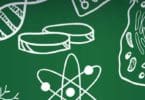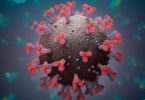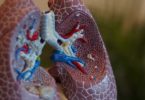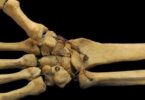Digestive System Test Questions and answers on Digestive Glands and Digestive System.
The function of tongue is to
(a) Help in the act of swallowing
(b) Help in mixing saliva with the food
(c) Help in speaking
(d) All the above
One of the digestive juices that lacks enzymes but aids digestion is
(a) Bile
(b) Succus entericus
(c) Chyme
(d) Chyle
Largest chamber in the digestive system of ruminants is
(a) Rumen
(b) Reticulum
(c) Omasum
(d) Abomasum
Gastric digestion takes place efficiently in
(a) acidic medium
(b) basic medium
(a) neutral medium
(d) None of these
The digestion of food starts in
(a) Mouth
(b) Liver
(c) Small intestine
(d) Large intestine
Related: Aromatic compounds quiz
Fat digestion is facilatated by
(a) Bile juice
(b) Pancreatic juice
(c) Gastric juice
(d) None of these
In the ruminant stomach, micro-organisms are present in the
(a) Omasum
(b) Intestine
(c) Oesophagus
(d) Rumen
Pancreatic juice contains enzymes which digest:
(a) Proteins and carbohydrates only
(b) Proteins and fat only
(c) fats and carbohydrates only
(d) proteins, fats and carbohydrates
The end product of fat digestion is
(a) Amino acids
(b) Starch
(c) Fatty acids
(d) Glucose
Which of the following are the correct functions of two components of pancreatic juice trypsin and lipase
(a) trypsin digests protins and lipase carbohydrates
(b) trypsin digests emulsified fats andlipase proteins
(c) trypsin digests starch and lipase fats
(d) trypsin digests proteins andlipase emulsified fats
Related: mcq on Stress and strain
A lubricant, mucin in saliva is made up of
(a) Glycoprotein
(b) Polysaccharides
(c) Phospholipids
(d) Myosin
During digestion the lymphatics of the intestine become filled with fat globules which give white colour to the lymph. This lymph is known as
(a) Chyle
(b) Haemoconia
(c) Fluid plasma
(d) Bilirubin
If the saliva is lacking amylase, then which of the following process taking place in the cavity will be affected?
(a) proteins breaking down into amino acids
(b) starch breaking down into sugars
(c) fats breaking down into fatty acids and glycerol
(d) intestinal layer breaking down leading to
Caprophagy is seen in
(a) Cow
(b) Rabbit
(c) Goat
(D) Ox
Submucosa is thickest in
(a) Stomach
(b) Oesophagus
(c) Intestine
(d) Rectum
Related: questions and answers on Polynomials
Which of the following is not a human salivary gland?
(a) Parotid
(b) Submaxillary
(c) Sublingual
(d) Infra-orbital
Digestion is
(a) Absorption of water
(b) Absorption of food
(c) Conversion of non-diffusable food particle in diffusable food particle
(d) None of these
The inner lining of stomach is protected by one of the following from the harmful effect of hydrochloric acid. This is:
(a) pepsin
(b) mucus
(c) saliva
(d) bile
Cellulose is made of several molecules of :
(a) Glucose
(b) Sucrose
(c) Galactose
(d) Honey
Animals eating own faecal matter are
(a) Sanguivorous
(b) Frugivorous
(c) Coprophagous
(d) Deteritivorous
Related: Respiratory system quiz with answers
Which word best describes the action of bile on fats
(a) Neutralises
(b) Digests
(c) Emulsifies
(d) Absorbs
The process of digestion in humans is completed in:
(a) oesophagus
(b) small intestine
(c) stomach
(d) large intestine
Digestion of protein is necessary due to
(a) Proteins are not absorbed as such
(b) Proteins are large molecules
(c) Proteins have complex structure
(d) Proteins are made up of amino acids
Micro-organisms in the ruminant stomach ferment glucose and produce
(a) Hydrochloric acid
(b) Nitric acid
(c) Acetic acid
(d) Fatty acid
Removal of stomach causes
(a) Dumping syndrome
(b) Turner’s syndrome
(c) Emphysema
(d) None of these
Related: Coordinate geometry questions
The chief function of bile is to
(a) Digest fat by enzymatic action
(b) Emulsify fats for digestion
(c) Eliminate waste products
(d) Regulate digestion of proteins
Function of HCl in stomach is to
(a) Kill micro-organisms of food
(b) Facilitate absorption of food
(c) Dissolve enzymes
(d) Activate pepsinogen to pepsin
Killing of bacteria occurs in
(a) Rumen
(b) Reticulum
(c) Omasum
(d) Abomasum
The process of digestion of food in humans begins in:
(a) stomach
(b) food pipe
(c) mouth
(d) small intestine
HCl is secreted by
(a) Zymogen cells
(b) Oxyntic cells
(c) Kupffer cells
(d) Mucous cells
Related: Ohm’s law questions
End products of protein hydrolysis are
(a) Mixture of amino acids
(b) Sugars
(c) Peptides
(d) 25 amino acids
In ruminants digestion is an example for
(a) parasitism
(b) Symbiosis
(c) Sporophytism
(d) All
The length of small intestine in a human adult is about:
(a) 4.5 m
(b) 1.5 m
(c) 3.5 m
(d) 6.5
Acid secretion in stomach is stimulated by
(a) Gastrin
(b) Histamine
(c) Vagal discharge
(d) All of these
True stomach is
(a) Rumen
(b) Reticulum
(c) Abomasum
(d) Omasum
Related: Electric field questions
The acid present in gastric juice
(a) Nitric acid
(b) Sulphuric acid
(c) Hydrochloric acid
(d) Acetic acid
Which one of the following will not take place when glucose is taken as food?
(a) Ingestion
(b) Digestion
(c) Absorption
(d) Assimilation
Digestive juice without enzymes:
(a) Bile
(b) Gastric Juice
(c) Pancreatic Juice
(d) Saliva
In the wall of alimentary canal which are/ is true sequence from outer to inner
(a) Serosa, longitudinal muscle, mucosa, sub mucosa
(b) Mucosa, serosa, long muscle
(c) Serosa, long muscle, circular, sub-mucosa, mucosa
(d) Serosa, long muscle, sub-mucosa, mucosa
Chyme is :
(a) Partially digested food
(b) An undigested food
(c) Absorbed food
(d) Solid food
Related: Protist quiz
In man cellulose is digested in
(a) The caecum
(b) The colon
(c) The appendix
(d) Not digested at all
Number of pairs of salivary glands are
(a) 1
(b) 2
(c) 3
(d) 4
Where are proteins first digested in the alimentary canal?
(a) small intestine
(b) oesophagus
(c) mouth
(d) stomach
A rabbit eats a lot of gram. Then its digestion starts in
(a) Mouth
(b) Stomach
(c) Duodenum
(d) Ileum
Trypsin acts on
(a) Proteins
(b) Carbohydrates
(c) Fats
(d) All
Relted: Animal kingdom quiz
Ptyalin is
(a) Salivary amylase
(b) Gastric amylase
(c) Pancreatic amylase
(d) None
Lacteals are central lymph vessels which are found in
(a) Liver
(b) Pancreas
(c) Villi
(d) Spleen
Related: Kingdom Fungi worksheet
The inner surface of the large intestine is
(a) Lined by muscular tissue
(b) Provided with epithelial tissue
(c) Lined with both epithelial and muscular tissue
(d) Lined by all four layers
In vertebrates, lacteals are found in
(a) Ileum
(b) Ischium
(c) Oesophagus
(d) Ear
In pancreas, pancreatic juice and hormones are secreted by
(a) Same cells
(b) Different cells
(c) Same cells at different times
(d) None of these
The number of salivary glands in man is
(a) Two pairs
(b) Three pairs
(c) Four pairs
(d) Five pairs
Related: blood pressure quiz for students
Pancreatic juice contains
(a) Trypsin, lipase and maltase
(b) Pepsin, trypsin and maltase
(c) Trypsin, chymotrypsin, amylase and lipase
(d) Trypsin, pepsin and amylase
Lactase is found in
(a) Saliva
(b) Bile
(c) Pancreatic juice
(d) Intestinal juice
Related: Nutrition test bank questions
Digestion of both starch and protein is done by
(a) Gastric juice
(b) Gastric lipase
(c) Pancreatic juice
(d) Ptylin







THANKS VERY MUCH%